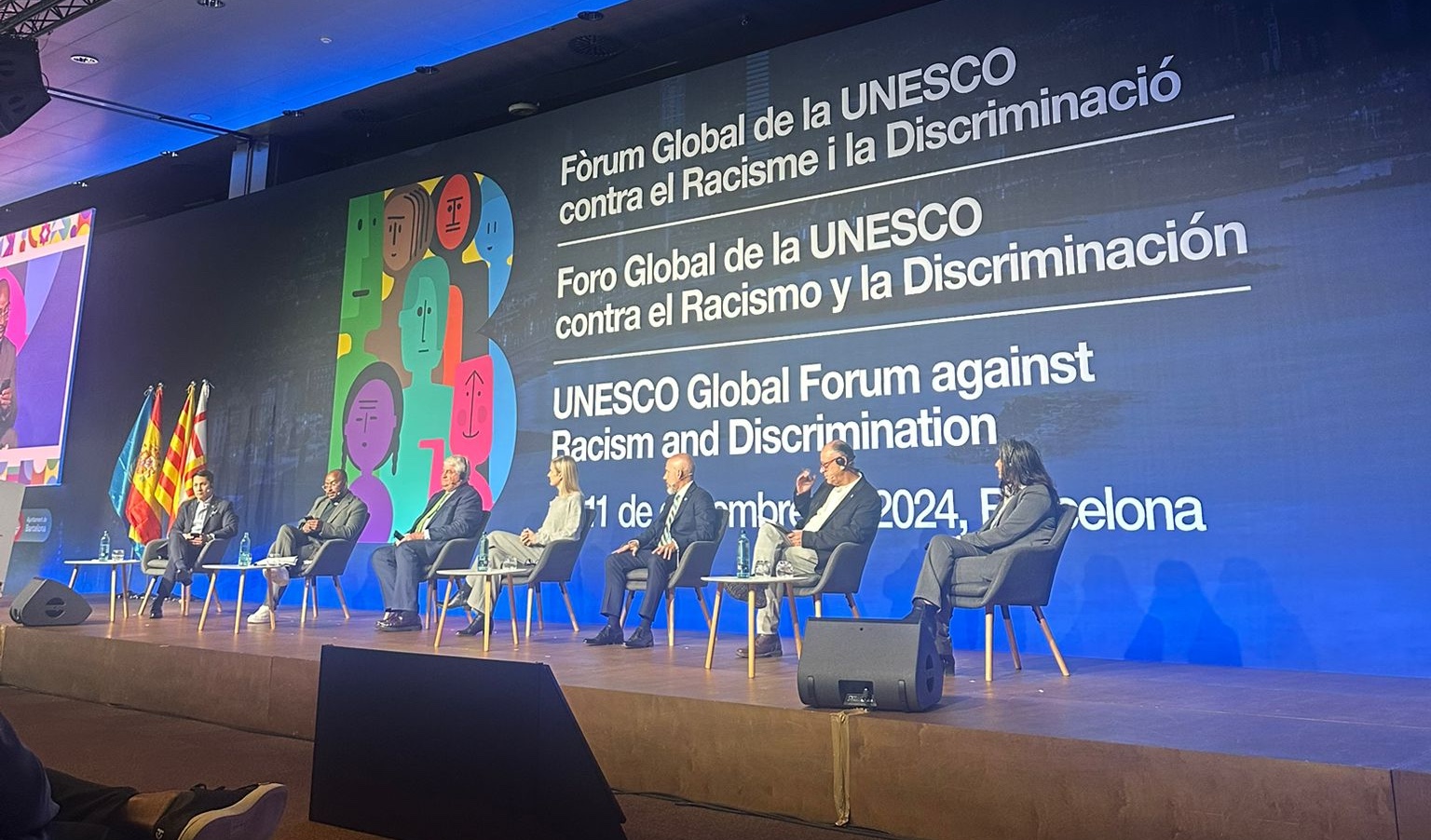Racism is one of the main blockers to reparatory justice for slavery. That’s according to businessman Denis O’Brien, founder of The Repair Campaign, who is speaking at the UNESCO Global Forum against Racism and Discrimination in Barcelona today (11.12.24). The Forum is the fourth annual event organised by UNESCO to advance the global anti-racism movement.
In his address at the UNESCO Global Forum today, he will speak about how his work in the Caribbean convinced him of the need for reparatory justice – and his belief that racism is currently a major blocker to reparations.
Speaking in advance, he said: “For over two decades, I have witnessed the enormous potential that exists in the Caribbean. But I have also seen firsthand how this region has been ravaged by brutal colonisation and the transatlantic slave trade. It is evasive and simplistic to dismiss those as historic events. The truth is their impacts are still very much felt today – socially, economically and psychologically.
“The Caribbean region cannot prosper because it is held back by public health crises, crippling debt, lack of access to education, intergenerational trauma and a multitude of other issues that have their roots in colonialism and chattel slavery. The region will only heal socially and economically if the legacy of slavery is addressed.”
Meeting with UNESCO
The Assistant Director General for Social and Human Sciences at UNESCO, Gabriel Ramos, and Denis O’Brien met in the context of the 4th Global Forum in Barcelona, to advance new thinking on reparatory justice, including exploring how affected countries could more quickly achieve their Sustainable Development Goals (SDGs). According to the Assistant Director General, “The links between the reality of racism and the legacy of enslavement and the trans-Atlantic slave trade are clear to see. The solutions to combating racism therefore must go hand-in-hand with confronting the legacies of the slave trade.”
Racism’s Roots in Slavery
Mr. O’Brien said he believes racism is a major blocker to reparations at present, and highlighted the links between present-day racism and the historic slave trade.
“Racism was cultivated by those benefitting from trans-Atlantic slavery and colonialism. They used it as a way of justifying their crimes and dehumanising the people they were kidnapping and trafficking around the world.
“If we wish to dismantle racism, the countries that built their wealth through colonialism and slavery must acknowledge their past crimes and apologise for them. Unfortunately, the racism they cultivated persists strongly to this day. And racism is one of the major obstacles to reparations currently. Instead of blaming countries in the Caribbean for failing to prosper, their former colonisers need to recognise that underdevelopment is a direct consequence of slavery and colonialism. A programme of reparations is not a simple matter of cash – it is an acknowledgement of the wrongs of the past, including the wrong of racism.”

